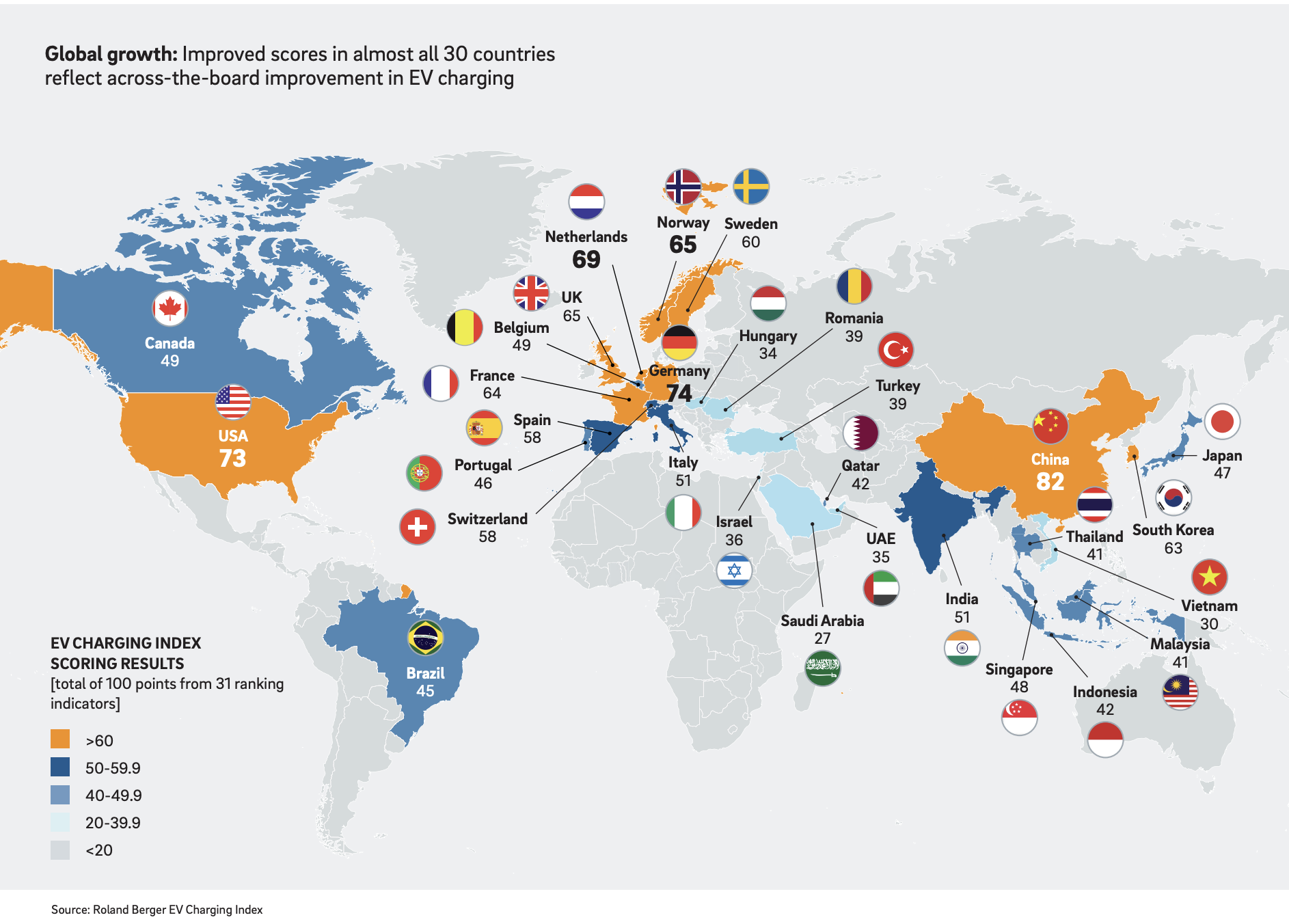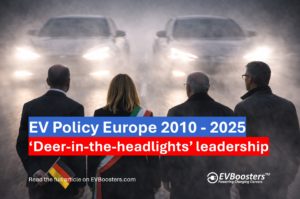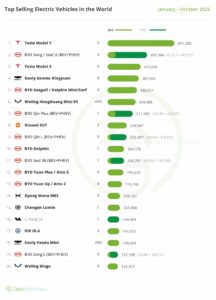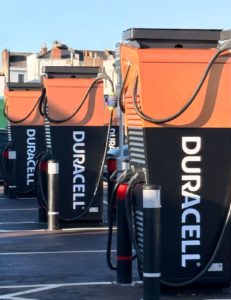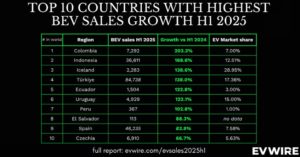One of the most notable trends is the narrowing gap between the top five countries and China. Germany and the United States have made remarkable strides, making ground on the leader. This fierce competition has sparked positive outcomes for the global EV market.
The report also highlights the impressive strides made by several countries in the Middle East and Southeast Asia. Malaysia and Indonesia stand out, each jumping an impressive 12 points in their scores. Saudi Arabia, previously at the bottom of the table with only 16 points, has surged forward to reach 27 points. These upward movements contributed to an average country score increase from 45 to 51 points, indicative of a thriving and expanding global EV charging market.
The driving force behind these developments lies in recent events within the EV market. A notable factor is the price war that has emerged, particularly in the lower-price-segment EV models. While the higher-price-segment EV models have always seen strong demand, the options in the lower-price range were limited. However, original equipment manufacturers (OEMs) are now stepping up their game. Tesla is slashing prices on its existing models and considering a low-cost option. Similarly, BYD is set to introduce its basic Seagull model at an affordable price in China, while Volkswagen eyes a low-cost model for the European market.
Moreover, advancements in the charging market itself have significantly impacted the EV industry. Tesla’s decision to open up its renowned supercharger network to all EVs in more countries has brought a positive shift. Additionally, California’s substantial investment of USD 2.9 billion to expand its public charging infrastructure indicates a commitment to fostering a robust EV charging ecosystem.
Furthermore, strategic partnerships are forming to support the growth of EV charging networks. Hertz’s collaboration with energy giant BP to establish an EV charging network in the United States will cater to the rental firm’s expanding EV fleet. Similarly, General Motors (GM) is entering the market with comprehensive charging services through its subsidiary, GM Energy.
The United States is also experiencing significant progress in its electrification efforts, backed by a series of new laws and investments. The Inflation Reduction Act (IRA), National Electric Vehicle Infrastructure (NEVI) program, and CHIPS and Science Act are set to stimulate EV sales, enhance charging infrastructure, and boost semiconductor capacity.
In conclusion, the global EV charging market is flourishing, fueled by improvements in scores and rankings across countries. The increased competition and strategic initiatives from various stakeholders are paving the way for a sustainable and electrified future. As countries strive for excellence, the world moves closer to a greener transportation landscape.
Source: EV Charging Index 2023 | Roland Berger
